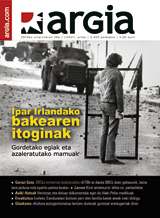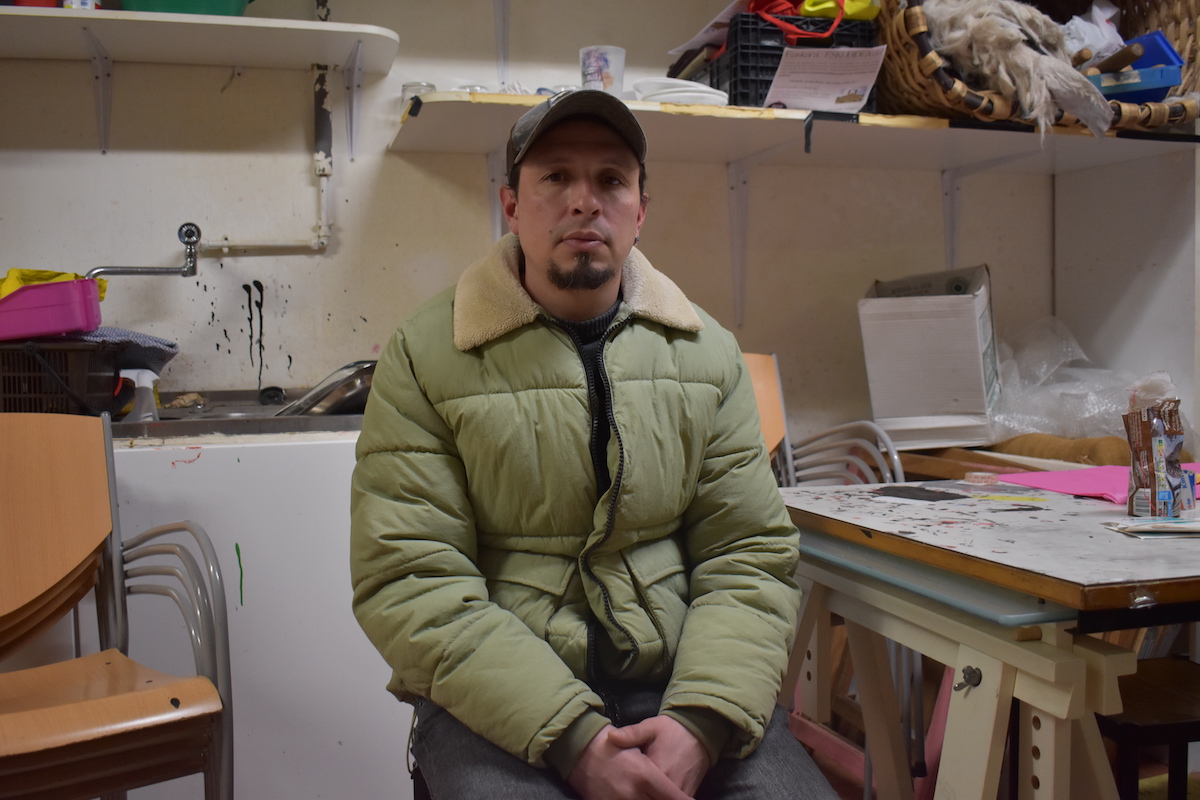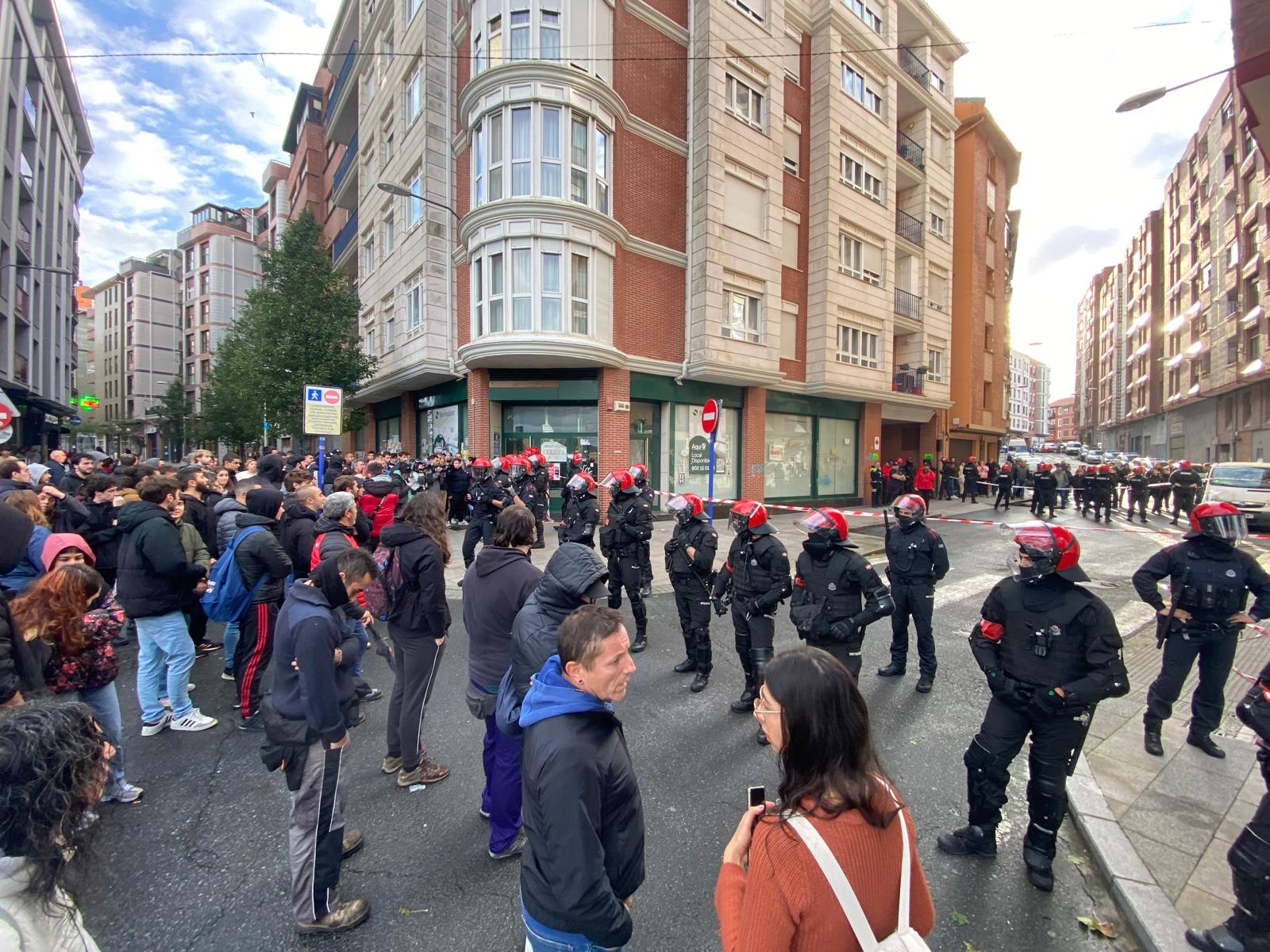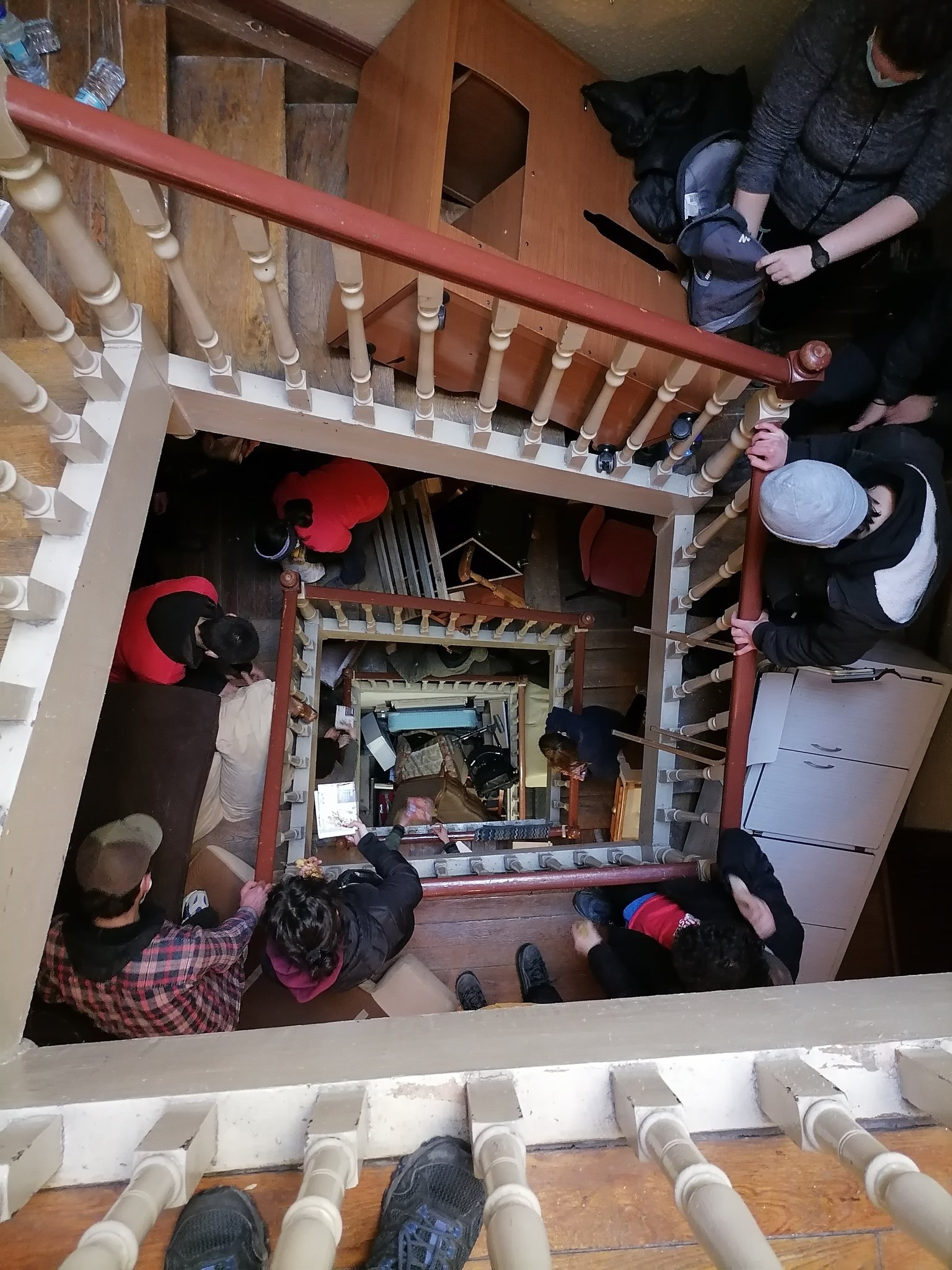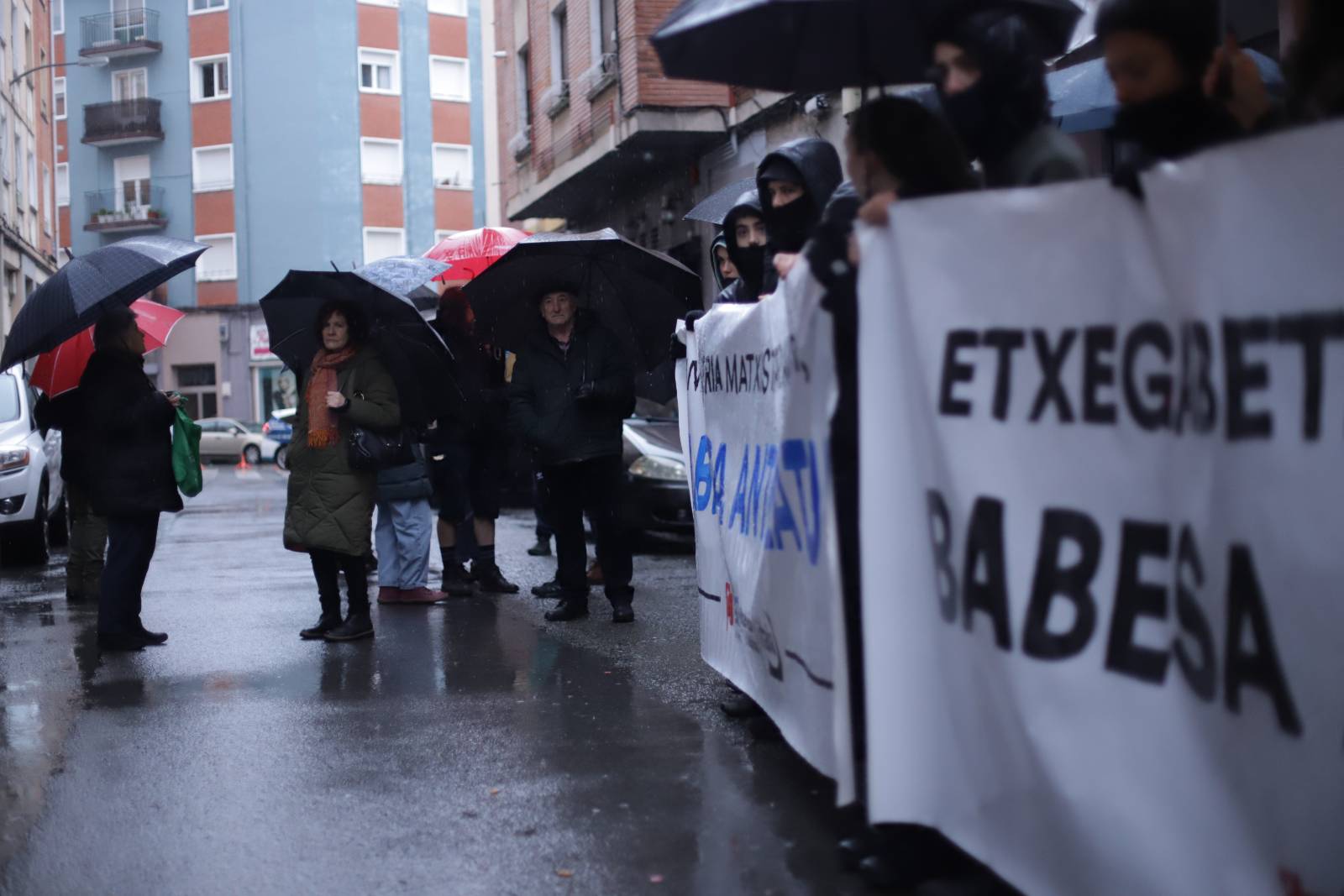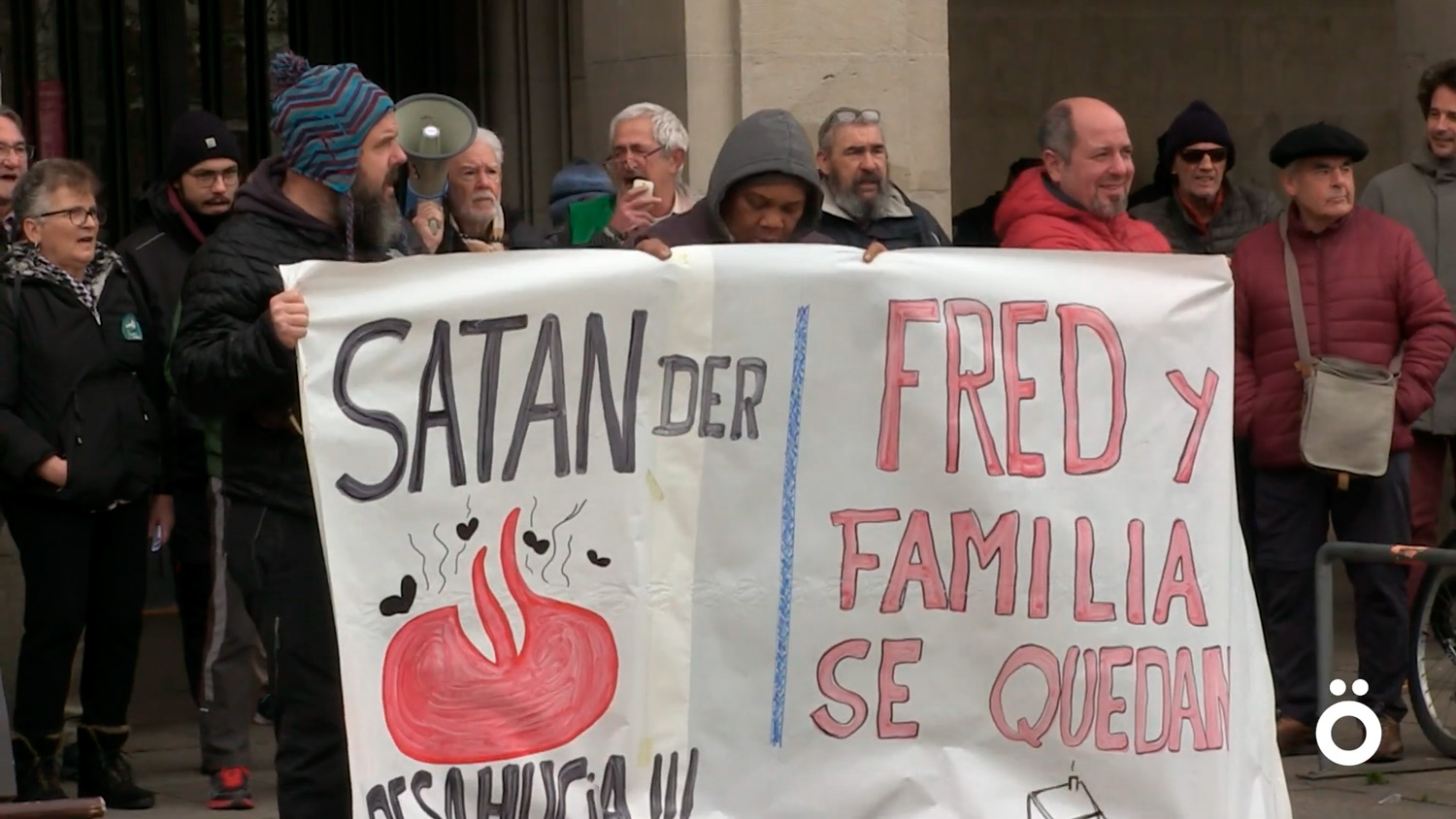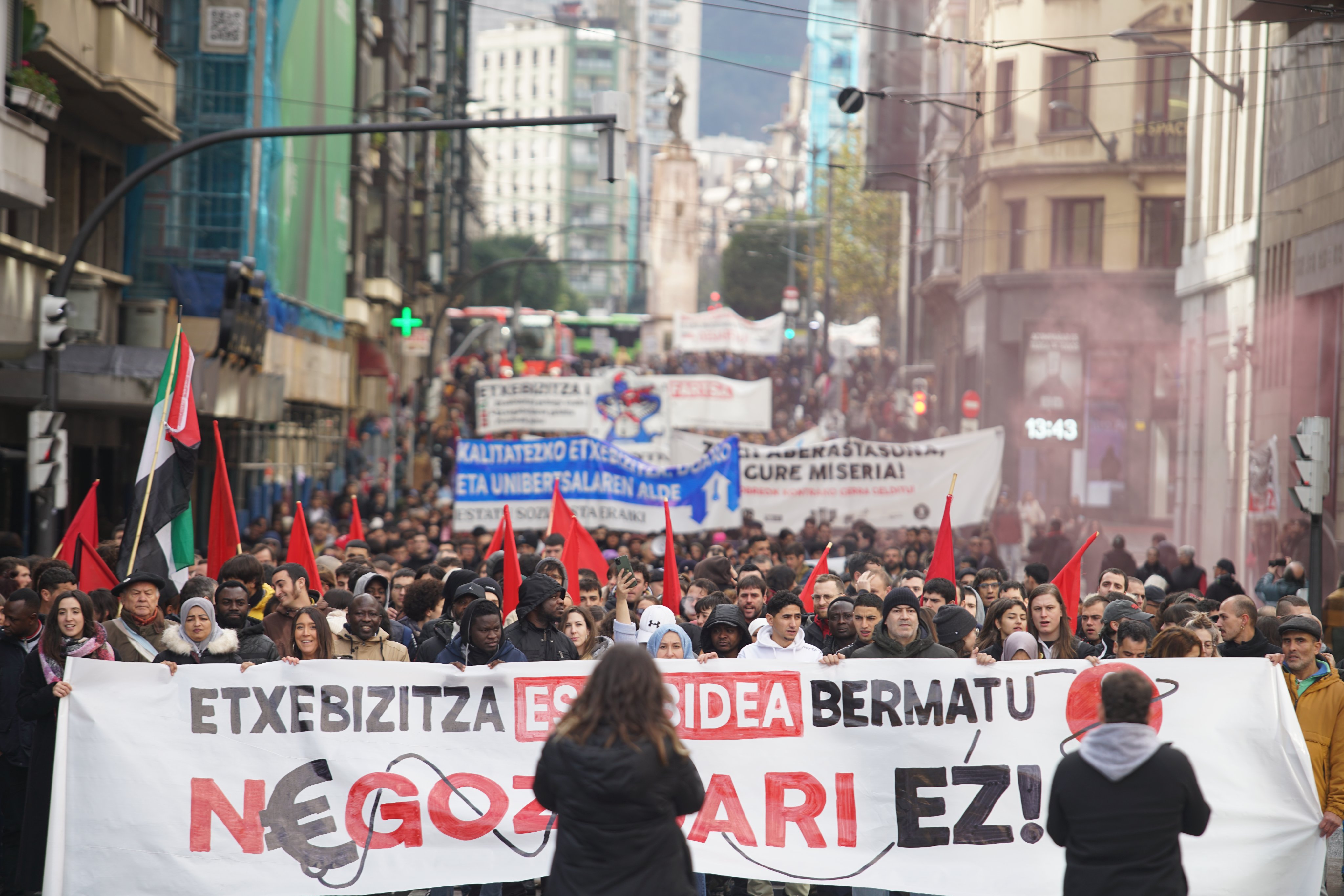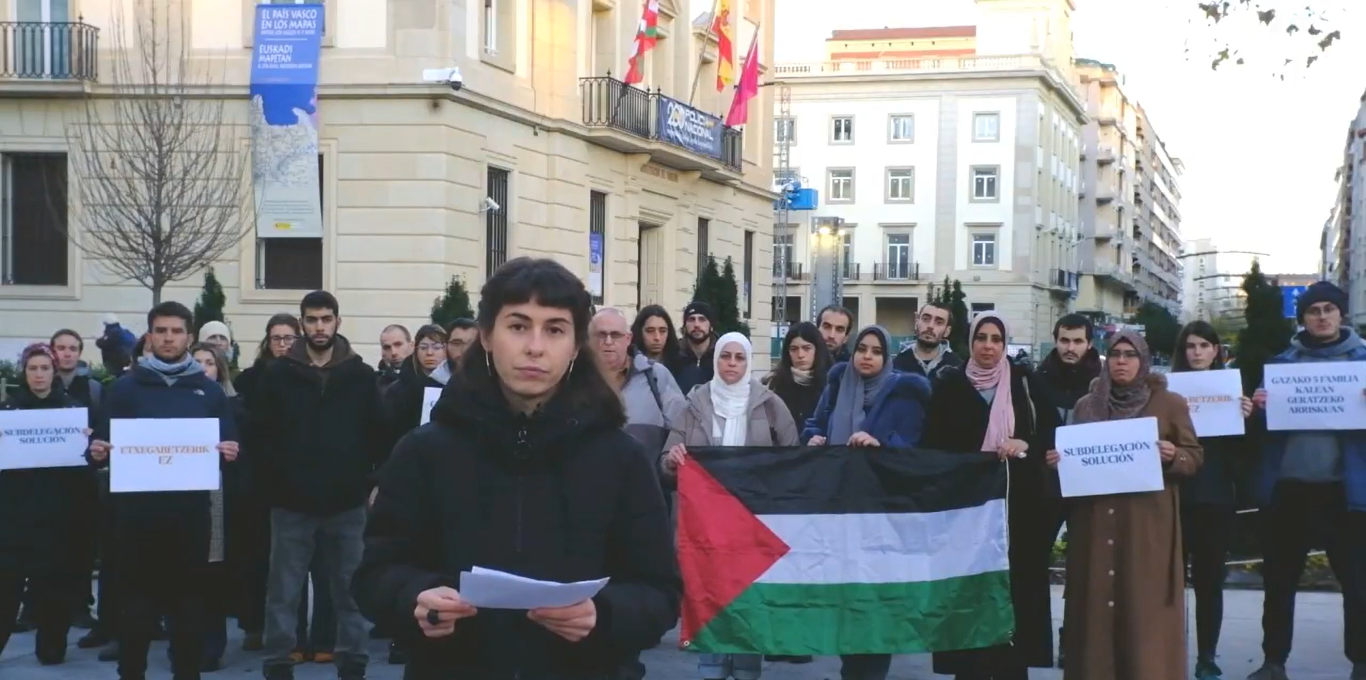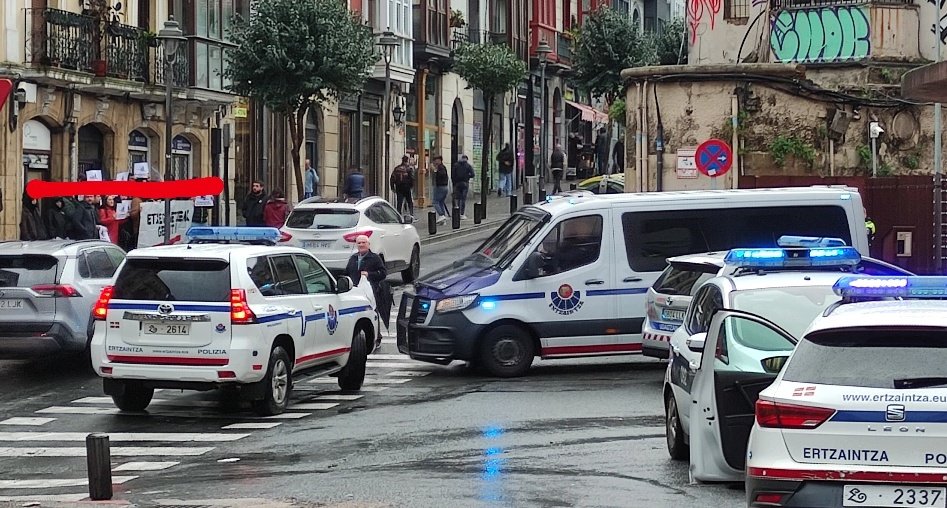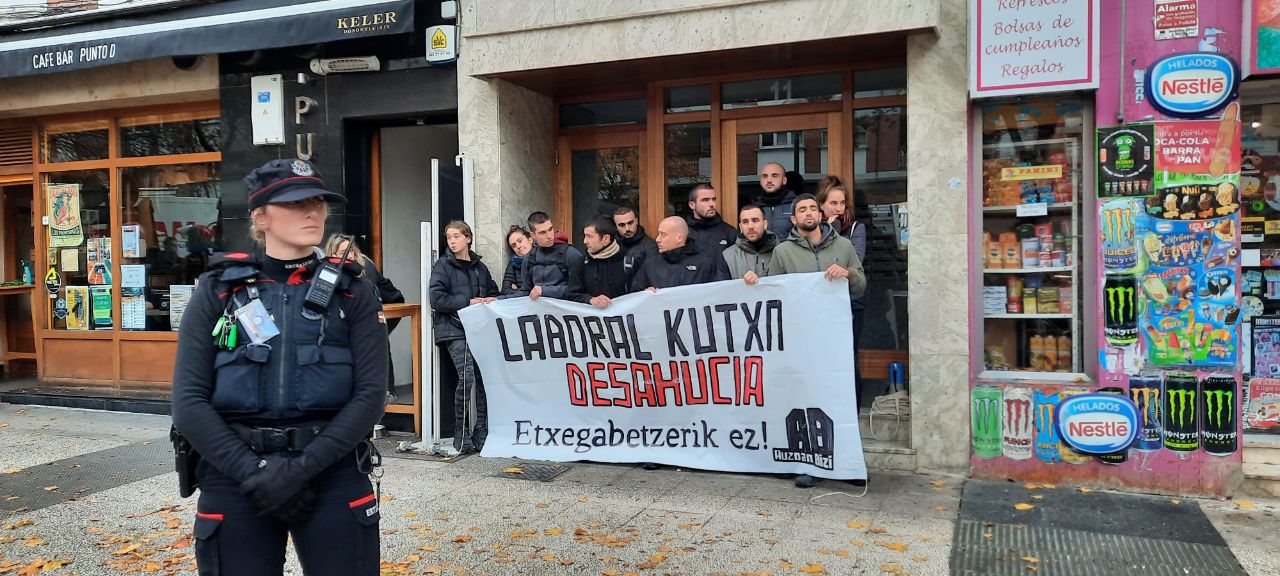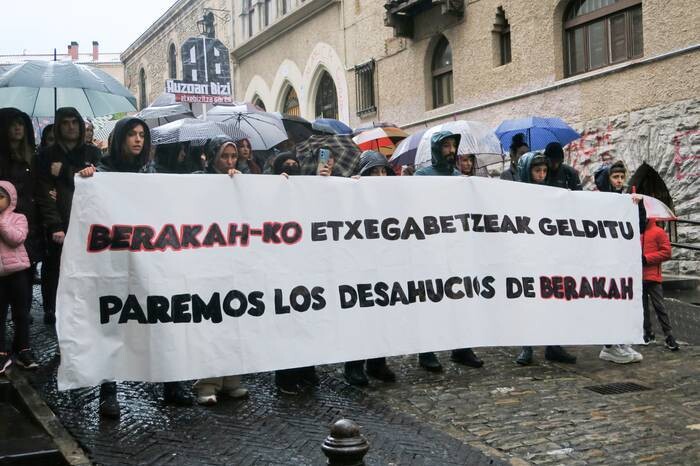Responding with solidarity to the neglect of the authorities
- The Group of People Affected by the Mortgage of Navarra has recovered two houses in the Pamplona district of Sanduzelai to make them available to families in need. They have opened the doors of one of the houses and we have talked to the new neighbours in the area.
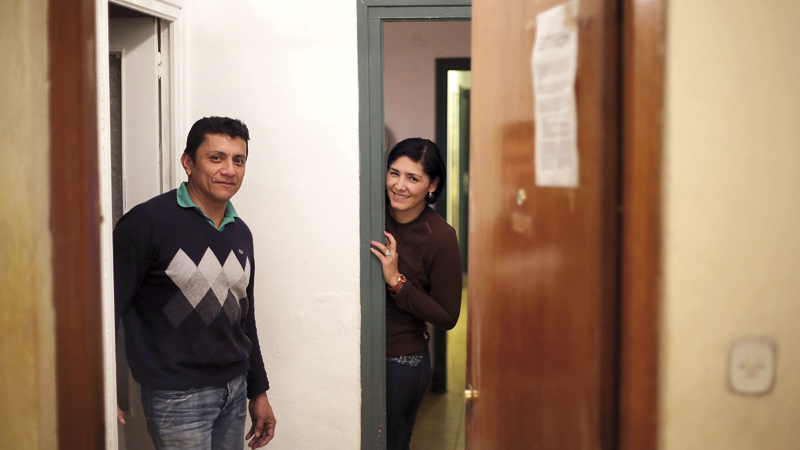
Expropriation, unemployment and poor living conditions have created very serious situations. The problem of housing is increasingly evident in the Basque Country. That is why people have been moving and a host of activities have been organised everywhere.
In Baiona, for example, several neighbours have initiated a okupation dynamic to address the housing problem in the Plantoun neighbourhood. In this sense, a collective has been created to claim the right to housing in Ipar Euskal Herria.
The Bilbao 2013 initiative was also launched last summer in Bilbao, with the objective of denouncing the housing problem and creating new models. Several people occupied the building located on the 13th of Ribera Street and in December have opened the doors of this large space that will host different projects.
Reclaiming houses in Navarra
Unofficial sources have pointed out that in Navarre there are thousands of dwellings empty, although the exact number of dwellings cannot be specified. The Government of Navarra has not carried out the count and so far has not provided any further information on the situation of the fire. The Group of Persons Affected by the Mortgage of Navarra (HUT) has requested a register and publication of the data in Parliament. The Government of Navarre has 322 houses built in its day for walkers, of which 150 are empty, as explained.
On November 6, the UTE "recovered" two houses in the neighborhood of San Jorge de Pamplona. The members of the platform have not defined it as an occupation, but have claimed that houses that belong to all are being recovered.
“The Government of Navarra abandoned these houses, left the windows open and inside the pigeons and other animals have nested. Why not humans?” the members of the platform ask.
According to HUT, there are 13 empty houses in this building under precarious conditions. These houses were built for the road network workers of the 1960s and 1970s. But just like many walking houses, nobody lives anymore and they have been abandoned for about 15 years.
During all these years, the residents have asked the authorities to do something with the above-mentioned floors. They have not received a reply, because the City Council of Pamplona was not responsible for it and was responsible for the government, but it has not shown any intention to do anything about housing either.
After the recovery of the dwellings, the Councilor for the Development of Navarra, Luis Zarraluqui, explained that the action has not been "well valued" and that they have been studying what to do with these dwellings for some time. The counselor has pointed out that “the floors are not abandoned, but these kinds of procedures require their time.”
However, in the light of the good response of society, HUT members hope that the Government will begin to move and that it will build its empty houses to make them accessible to those most in need as social housing. If not, they have stated that they will continue with the recoveries. “We cannot wait for the government to stand, seeing that many families really need it.”
Law vs. Business
From the platform of those affected by the mortgage, they have denounced that “the Foral Government is continuously boosting the real estate business.” HUT spokesman Ángel Larrea warned that Navarre is the only community that continues to provide financial aid to encourage housing sales. According to data published by the INE (National Institute of Statistics) in January 2013, in Navarra the sale of housing increased 9.7% in November 2013 compared to December last year. In the CAV, on the other hand, the sale of housing fell by 8.6% in the fourth quarter.
HUT believes that, following the model of most European countries, rental should be encouraged. To this end, they have asked the senior officials to relax the prices and conditions of the rents. They propose that private individuals should not have to pay more than 30% of the rent revenue.
On the other hand, they have called for housing to be paid if the citizen is unable to pay the mortgage to the entity. “It is unacceptable that you lose what has been paid over the years to buy a home, that you stay homeless, and also stay in debt.”
The platform, which was born two years ago, has a total of 12 groups spread throughout Navarre. Initially the platform was made up of people affected by the mortgage, but in view of the current situation and the demand, they have set up a commission to meet the needs of people living on rent.
Dora Ruiz y Marco Paz
Dora Ruiz Rodríguez and Marco Paz Ocampo live in one of the two apartments recovered in the neighborhood of San Jorge. Ruiz arrived in Pamplona in 2002 from Colombia, while Paz arrived in Ecuador in 2001. Fabian and Lady live with their children aged 23 and 25. Paz has two children in Ecuador and Ruiz has one in Colombia.
At that time, both had a job and earned good salaries. They were encouraged to purchase a flat with a monthly fee of 730 euros. A time later, with the increase in interest and Eurybor, they were charged a mortgage of EUR 1,460, twice the initial one.
They both lost their jobs and, after seven years of mortgage, the bank expropriated them two years ago. However, the debt amounts to EUR 141,300. Since then they have lived in rent and have had many difficulties in reaching the end of the month.
In search of solutions
The couple says they have touched all the doors to ask for help, but no one has given them any solution. The last option was to go to the Mortgage Affected Group. “They are the only ones who have helped us,” Ruiz said.
When they approached the platform, they remember that at first they were ashamed, because they had to “undress” their life, tell their circumstances and explain their financial accounts. “But in the meetings you hear cases from other people, you realize you’re not the only one and we’ve met people who are worse off than us,” explains Paz.
When HUT members asked them if they were willing to enter one of St. George's homes, they gave their assent. At first they hesitated, because they were afraid to enter a house that was not theirs, shunting the law. “In the end we made progress because we had nothing to lose.”
“They have been exhausting weeks, psychologically hard,” says Ruiz. He recalled that at the beginning he suffered many headaches, with an internal conflict, in case he had done well getting into the houses.
Now, sitting on the couch of the new house, you see things differently and you're proud of the decision you've made. “When we saw the houses, I was very upset, because they were very abandoned, in a painful situation. I didn't want to see my family living in such a place. But with the help of the people we have achieved ideal accommodation for six weeks,” he says.
The families of their countries of origin have not been informed of what has happened to them, because their relatives would be very concerned and because they fear that their relatives will think that they "have failed". “You wouldn’t understand it, there people weren’t indebted like here. The one who has money buys it and the one who does not buy it does not. If you don't pay public entities, you go to jail. But if you have a debt to a private individual, you risk death. Here, however, the smallest thing can be funded on time, which increases the consumer culture.”
Result of auzolan
Many people of different ages have contributed to the adequacy of houses, and many others have provided kitchen utensils or household appliances. Since the previous house their furniture and items have been taken to the new home, but the kitchen and bathroom have been conditioned with what people have given them. They don't have heating, but they adapt to the stoves.
The members of the HUT are very grateful: “The public has responded to the lack of sensitivity that the authorities are showing,” says Larrea. The platform wants to claim a new housing model through the message “Yes can”.
Ruiz y Paz have recalled that the neighbors of the other three houses in the building also gave them a warm welcome. “They came to know us and expressed their satisfaction for being new neighbours. They prefer to be surrounded by houses that deteriorate every day more than with inhabited floors.”
Need for a contract
The aim is to reach an agreement with the Government of Navarre in order to achieve a contract. Sign minimum requirements and keep them within the law to ensure that they are not forced to leave the premises at any time. On the other hand, it is intended to secure housing and pay for electricity and water. Now, since the accommodation is not on their behalf, they do not pay any expenses, but in no official document appear that they live there, which dispels them from the law. “We do not want to live for free, we want to pay a social rent based on our income.”
They encourage people in their situation to go to the platform of their village or neighborhood and to carry out this type of project as far as possible. They want their experience to be useful to others. At the same time, they have been willing to participate in possible recoveries from now on.
Ez da gauza berria politikari profesionalak gizarteko arazoak estaltzeko ahaleginetan ibiltzea. Azkenaldian Denis Itxaso -EAEko Etxebizitza sailburua- entzun dugu etxegabetzeei garrantzia kenduz eta aditzera emanez gurean bazterreko fenomenoa direla; eta Begoña Alfaro... [+]
Azora putre funts alokairua igo eta mantentze lanak alde batera utzi ditu, Isaac Lagos eta bere familia etxebizitza uztera behartuz. Kaleratzearen aldeko epai bat jaso berri du maizterrak.
Etxera itzuli ahal izan diren arren, joan den azaroan kaleratu zuten Astrabuduko familia berriz ere arriskuan dago. Uribe Kostako Etxebizitza Sindikatuak salatu du mailegu-enpresa berriz ere saiatzen ari dela kanporatzea gauzatzen, oraingoan, desokupazio-enpresa bat... [+]
Azken egunak garrantzi handikoak izan dira Bartzelonan, etxebizitzaren aldeko mugimenduarentzat eta espekulatzaileen aurkako borrokarentzat. Urtarrilaren 28an, polizia-armada batek Raval auzoko Massana Zaharrari [zentro sozial okupatua] eraso egin zion goizaldean, aurrez abisatu... [+]









